Hit by massive floods and with no support from the Taliban, Afghans are left to survive on food scraps
As the flow of foreign aid dwindles dramatically, charity workers are struggling to help millions of poor Afghans whose lives have been made even more precarious by persistent floods and droughts. Arpan Rai reports

A kilo of potatoes in Kabul costs no more than five pence, but even that is unaffordable for many of the Afghans who are battling extreme poverty. Some parents are being forced to collect potato peel from neighbours to feed their children.
Adding to this brutal mix is the fact that humanitarian aid into the war-ravaged country is drying up – a cycle of droughts and flooding has also destroyed crops or rendered farming much more difficult.
Surviving on food scraps is still less desperate than having to marry off a daughter for money, something a number of families in northwestern Afghanistan have reportedly been compelled to do since the Taliban seized power.
The Afghan economy has been battered by decades of occupation and war, leading to foreign interventions – first by the Soviet Union, and then by the United States and its allies – before the Taliban takeover brought yet more instability.
That misery has been compounded recently by a series of natural disasters, including heavy rainfall, drought, flash flooding, and unseasonal frost every month of this year so far.
Last Friday and Saturday, massive flash flooding killed more than 300 people in the northern provinces of Baghlan and Takhar, wiping away mud houses and cattle and destroying standing wheat and vegetable crops.
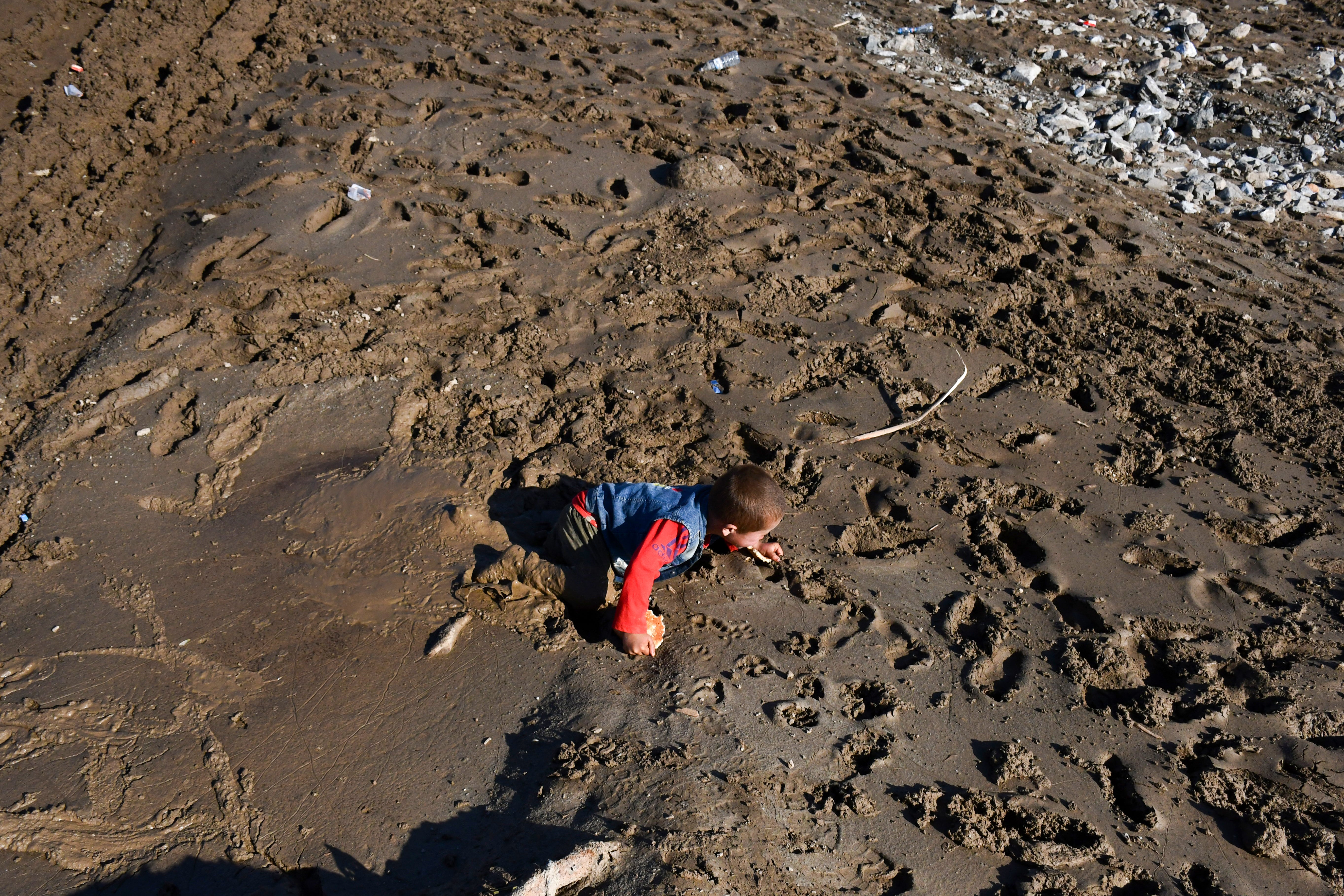
“The majority of those who died were women and children who could not run out of their houses in time,” Abdul, a man in his twenties, tells The Independent.
The naked bodies of female flood victims were left in the open because of the Taliban’s mahram rule, which doesn’t allow any man other than a woman’s husband, father, brother, son or nephew to touch her body, claims Abdul, who doesn’t give his full name for fear of reprisals by the Taliban.
Abdul has never seen rainfall and floods like this past weekend’s, and neither has his 70-year-old father. “All fields of wheat, potatoes and beans were ready for harvest. The Taliban will not offer any economic help, its officials looked at us from a helicopter,” he says.
“This is going to make us bleed economically in the coming months. Already there are women with kids in tow begging on the streets of Baghlan. What is next?”
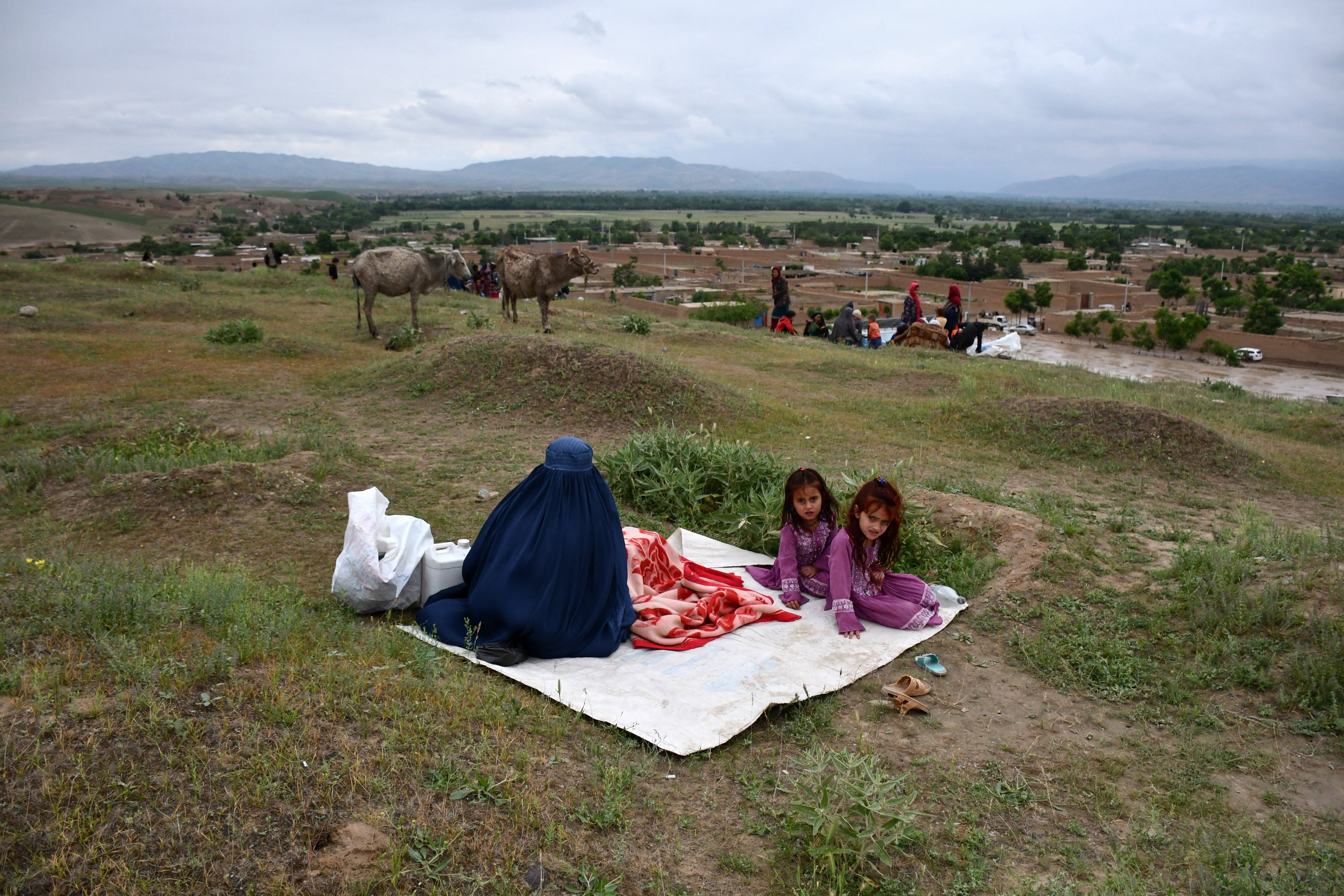
Similar disasters last year – excess rainfall, flash floods and drought – extracted a heavy human cost from poor Afghans like Ismail*.
To feed his family, Ismail was forced to agree his one-year-old daughter’s engagement to a young boy from a local family in exchange for 5,000 afghanis (£55). The desperate trade-off came after he had sold his five goats.
“We had nothing, so we had to make this deal; it’s still something for us,” he told a representative of the World Food Programme (WFP). His only source of income now is collecting goat droppings, which fetch him up to 100 afghanis a day. That’s about £1.
Ismail’s family is one of thousands in Afghanistan who are struggling for their next meal, according to the WFP. It’s a humanitarian crisis that is only likely to worsen, as international aid is set to plummet this month, says Philippe Kropf, a spokesperson for the organisation.
According to the US Special Inspector General for Afghanistan Reconstruction, the UN has bought, transported and transferred aid worth at least $2.9bn (£2.3bn) to the country using international donations since August 2021, when the last of the Western soldiers left and the Taliban retook Kabul after 20 years.
The bulk of the money, around $2.6bn, has come from the US in the form of funding for UN agencies and NGOs.
The WFP says that, between January and March this year, it gave emergency food assistance to 7.1 million people in Afghanistan, which has a population of about 43 million.
In May, it will be able to help only about 3.3 million people, Kropf says. Between June and September this year, with funding drying up, the number of beneficiaries is set to drop further to around 400,000. This means thousands of families like Ismail’s will no longer receive food or cash assistance.
“Seeking charity from any source, including begging, has become common in the last couple of years. You see children, young women, and even men of around 25 years of age begging in bigger cities, asking for money for one or two pieces of bread. That is also a coping mechanism and much less a source of income,” says Dr Qadir Assemy, head of the WFP office in Herat.
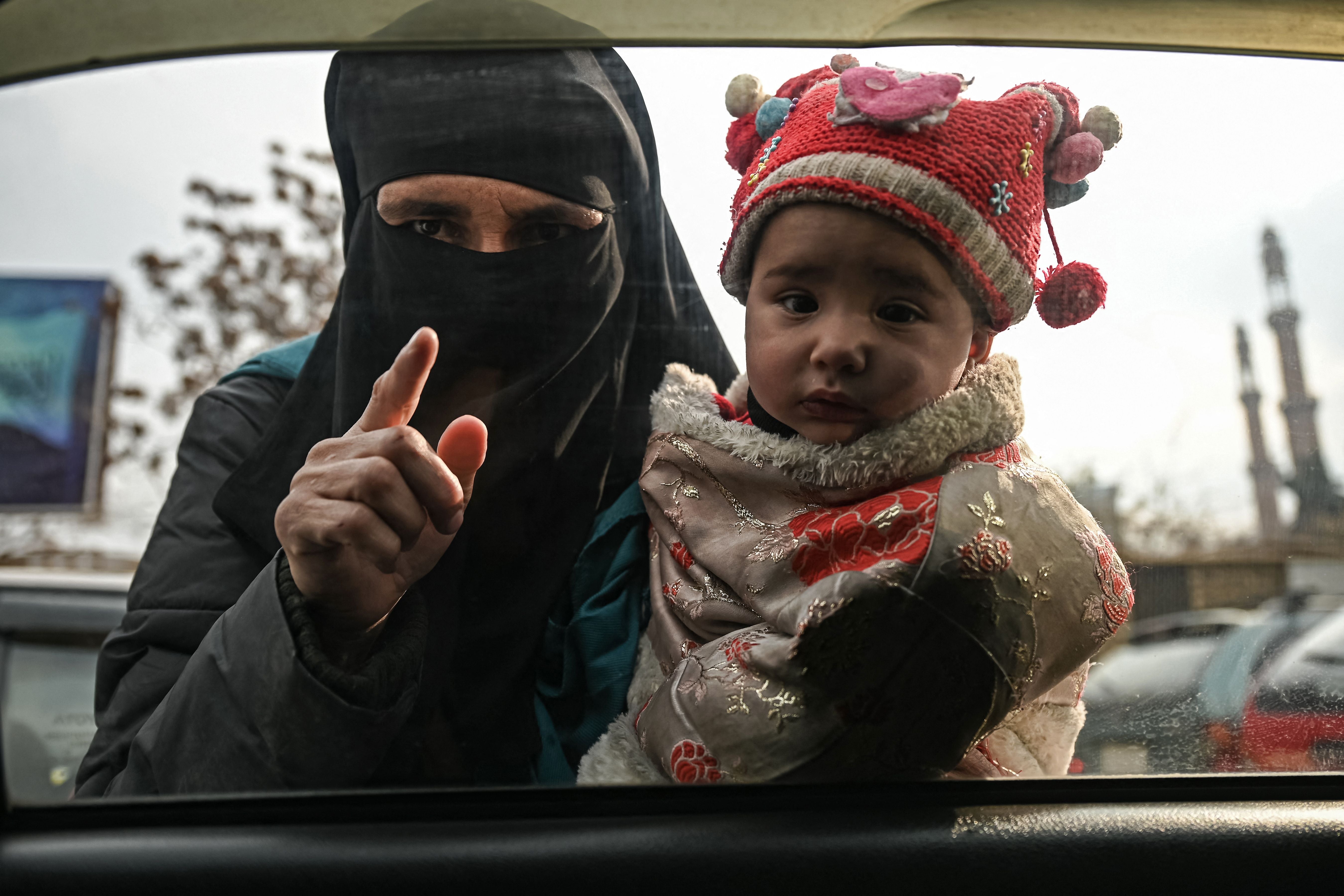
He was told about families collecting and cooking potato peel by a social activist he spoke to last month. He also knows of at least one family who had to marry off their daughter for a few afghanis.
It is a “coping mechanism” for poor families who have neither education nor work to support themselves, and do not have an escape route out of Afghanistan, says Assemy.
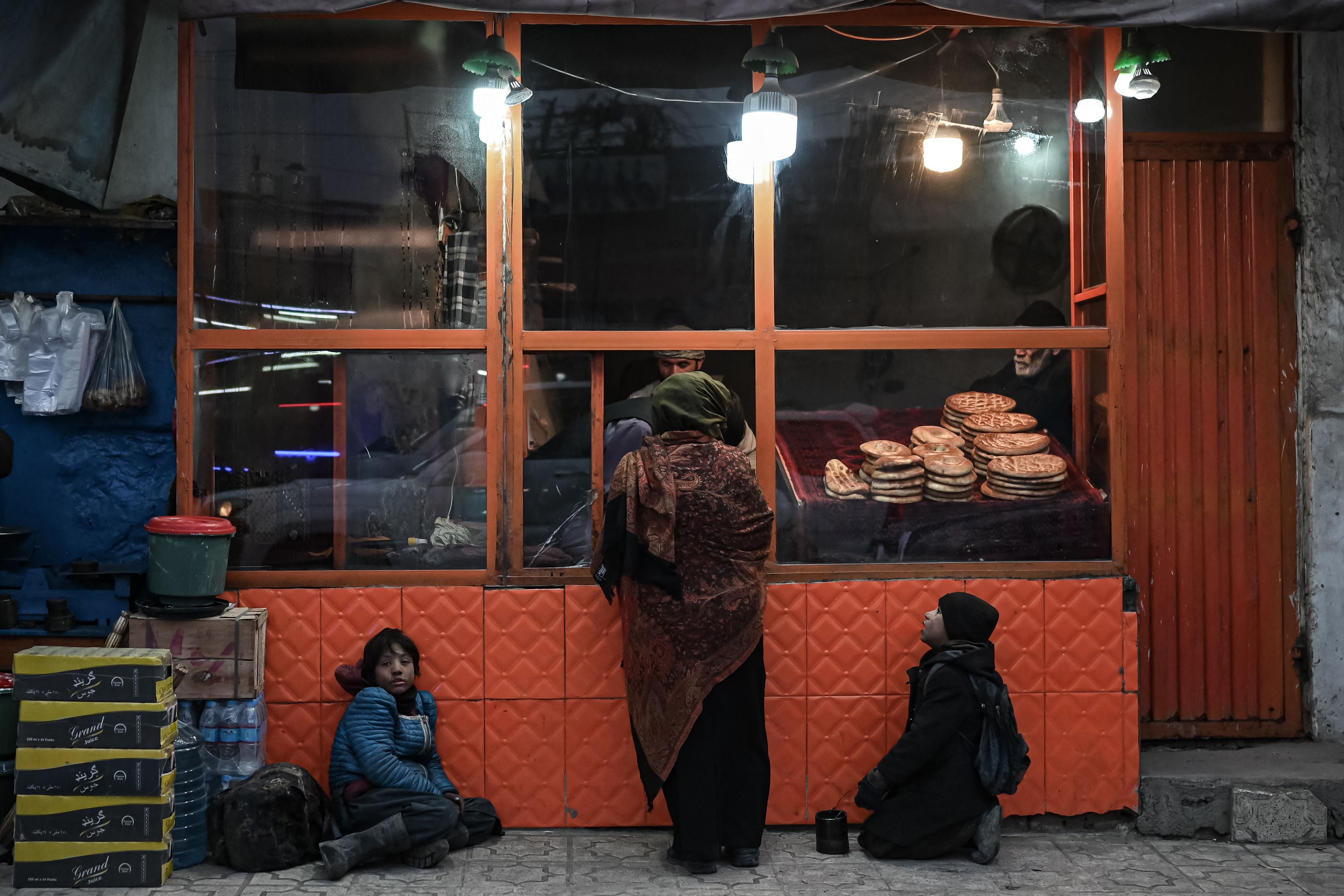
Sons, meanwhile, are sent to neighbouring countries such as Iran as cheap labour to help sustain their families. “The level of trauma among Afghan boys and men is no less than what girls and women are being subjected to,” he says.
In Badghis, the northwestern province near Turkmenistan, the WFP found a poor family who had given their two-year-old daughter in marriage to a 44-year-old man with two wives in order to receive a bridal dowry. They had nothing left to survive on after losing their crops to bad weather, and had already married their two older daughters in similar arrangements. Girls married off in this manner stay with their parents until they are teenagers.
“It was like pouring salt on my wounded heart,” Asma’s father told the WFP.
Girls in such situations are generally married to boys of similar age, says Elise Blanchard, a French journalist who has reported from Afghanistan.
Blanchard met Mollah Alauddin in Qul Charkh. He had engaged his nine-year-old daughter to the son of a man he had borrowed seeds from, to clear his debt.
Blanchard quotes Alauddin’s words: “It’s very difficult to sacrifice a family member to save the others. Can you imagine seeing someone take away your daughter at the age of nine or 10?”
Qul Charkh was one of many villages excluded from the WFP’s aid distribution programme last September.
Badghis and Herat are marked in red on the organisation’s map of food security, as more than 3.5 million people across the two provinces are in desperate need of aid.
Afghan families assisted by the WFP receive either cash – the agency won’t disclose how much – or 100kg fortified flour, 9kg fortified vegetable oil, 12.5kg pulses and 1kg salt. Given the average size of a family is seven, that meets the requirement of 2,100 kilocalories per day.
But lacking adequate international funding, the WFP has been forced to cut the rations by half.
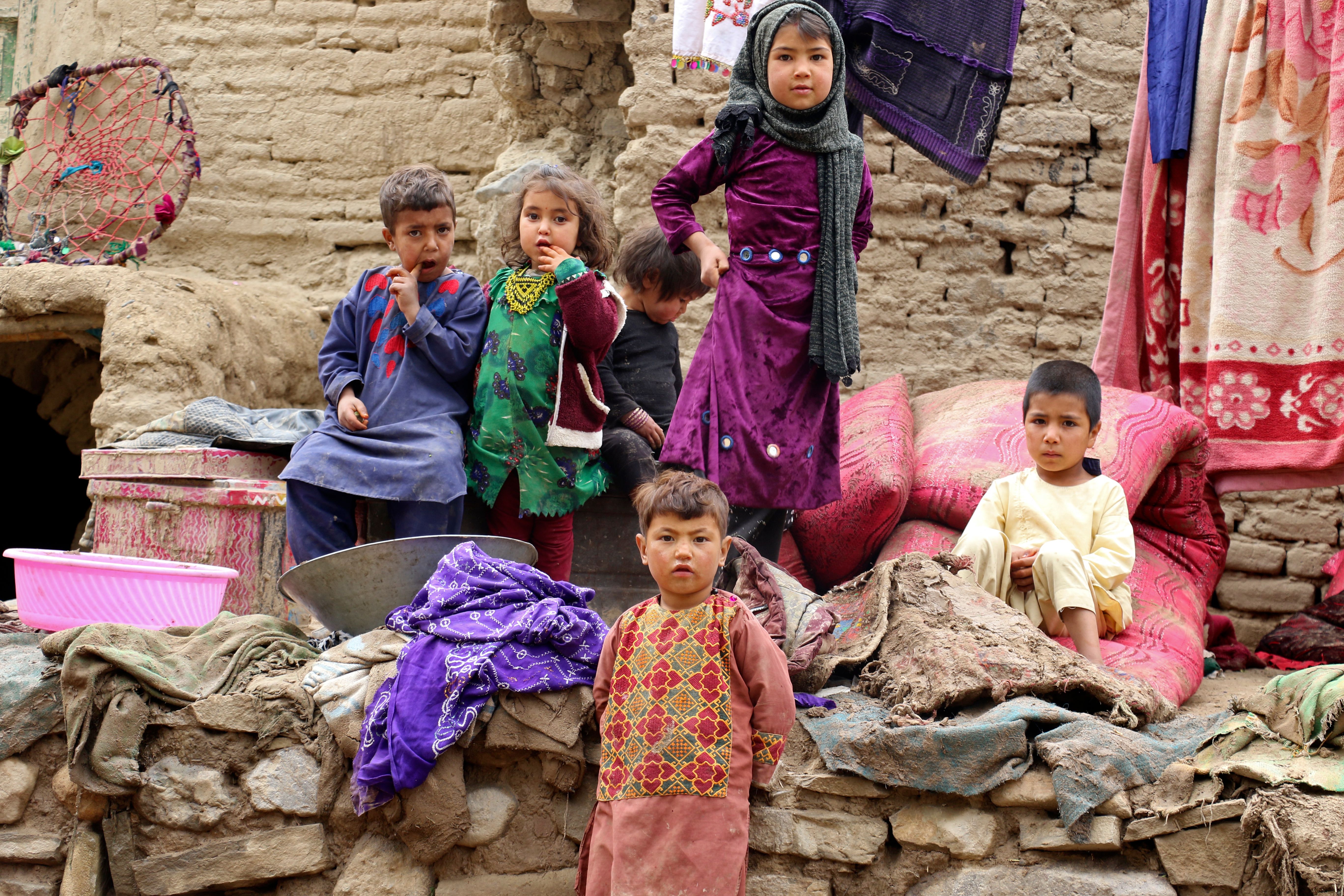
The agency now prioritises families that meet at least six of its 13 vulnerability criteria. In the main, a family with more dependents has a better chance of receiving assistance.
“So one head of household, say a man, and his wife, who also happens to have a couple of children, with no money or food whatsoever, will be rejected for assistance against someone who has already exhausted all coping options or has someone with disability in their household,” Kropf says.
In March, the WFP realised it was running out of money in Afghanistan and would have to curtail its operations. In April, floods compounded the misery of the Afghan people. Now May has brought more devastation.
“We are having to pick between families and beneficiaries that we never should have to pick between,” Kropf says. “Enough international aid should meet these requirements, but we are now going to halve the number of families we were helping out.”
“The situation is worse than dire,” he adds. “[It’s] an absolute grim picture we are looking at.”
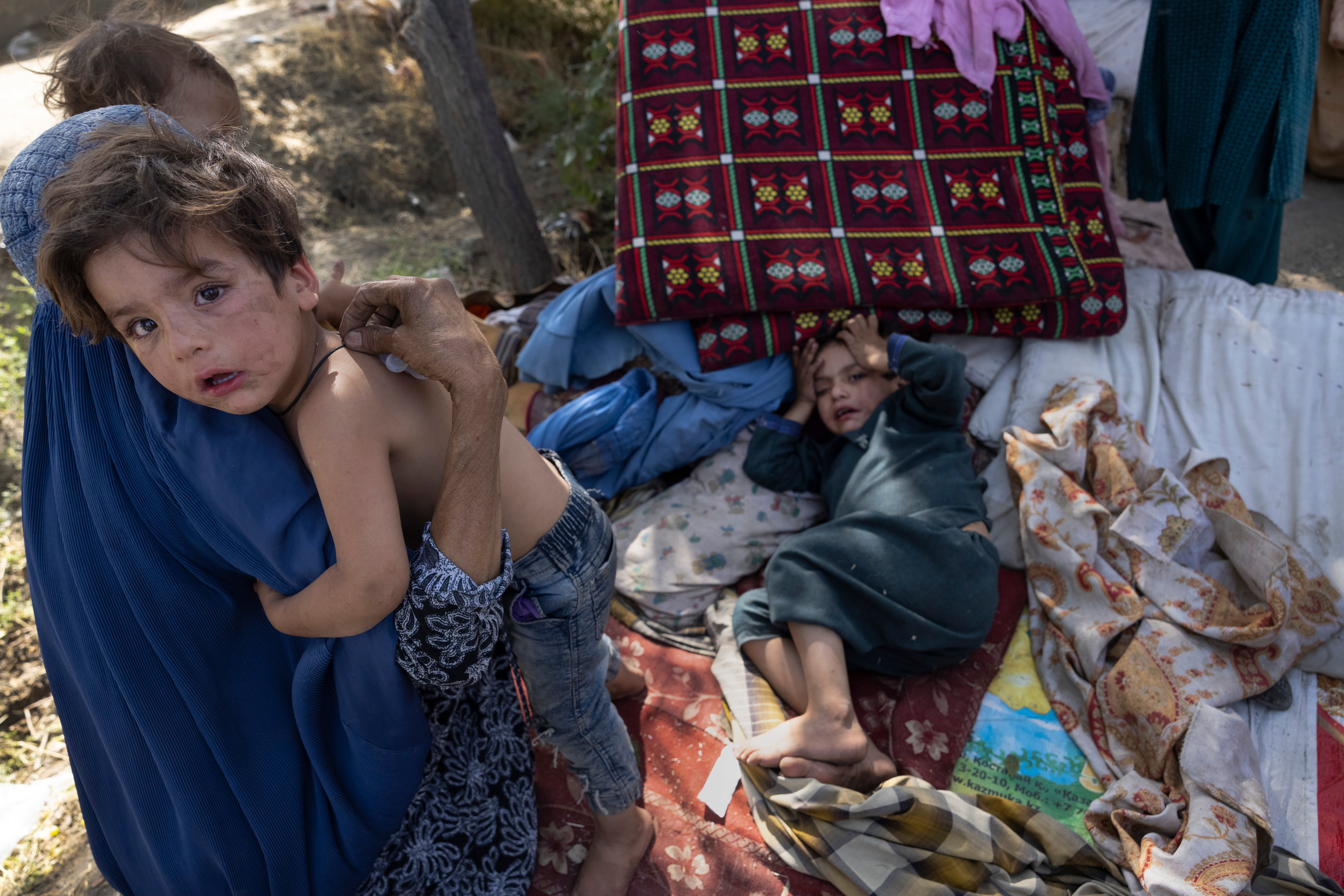
Rana Deraz, a WFP communications officer in Kabul, points out that the latest flash floods have “affected some of the poorest people on the planet”.
“They were already struggling for their next meal, and now are left to deal with the most horrible conditions.”
*Names have been changed to protect identities






Join our commenting forum
Join thought-provoking conversations, follow other Independent readers and see their replies
Comments